A Halloween Treat: The New Death and Others by James Hutchings

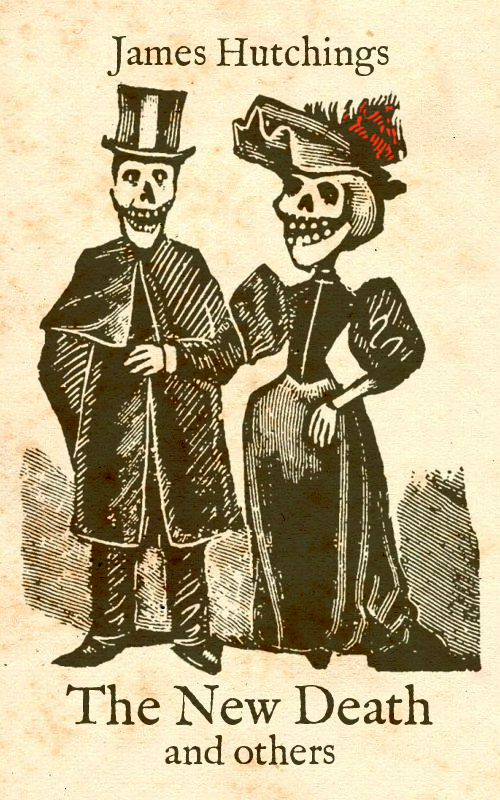 The New Death and Others is James Hutchings’ newly-published collection of gothic poetry and short fiction. The title found its way to me through my appreciation of Robert E. Howard’s “The Mirrors of Tuzun Thune” for it is one of four fantasy stories that the author adapts in verse form. I admit to being skeptical that the quality would not come even close to doing justice to the works that provided inspiration. When I read Hutchings’ poem, I found myself recalling Tolkien’s use of poetry throughout The Hobbit and The Lord of the Rings. Here was a similar approach that uses the beauty of words sparingly to convey complex stories or histories in minimalist form. Hutchings’ work immediately captured my imaginations and left me hungry to sample more of his work.
The New Death and Others is James Hutchings’ newly-published collection of gothic poetry and short fiction. The title found its way to me through my appreciation of Robert E. Howard’s “The Mirrors of Tuzun Thune” for it is one of four fantasy stories that the author adapts in verse form. I admit to being skeptical that the quality would not come even close to doing justice to the works that provided inspiration. When I read Hutchings’ poem, I found myself recalling Tolkien’s use of poetry throughout The Hobbit and The Lord of the Rings. Here was a similar approach that uses the beauty of words sparingly to convey complex stories or histories in minimalist form. Hutchings’ work immediately captured my imaginations and left me hungry to sample more of his work.
I humbly admit to struggling with technology. Many are the times I require my kids’ assistance to navigate through the DVD’s remote in order to access special features or skip chapters or fast forward properly. The idea of owning an eBook is something that appeals to me as much as owning an iPod or iPhone. That said Amazon has made it hard for me to resist the technology with their free PC for Kindle download. As a reviewer, there are an increasing number of publishers who prefer to send their works as an eBook. The freeware allows readers to enjoy numerous free classics as well as sample other works for literally a fraction of their printed cost and without having to buy an expensive Kindle or Nook. All of this is actually relevant since Mr. Hutchings’ excellent offering is available at Amazon as an eBook or direct from Smashwords’ website for download. Quite honestly, I cannot think of a more perfect Halloween gift than this collection of poems. One could easily see the book becoming a seasonal tradition.
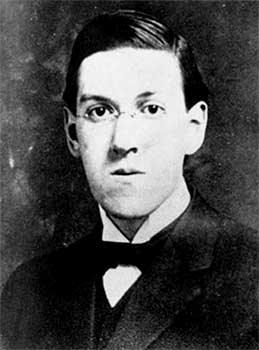
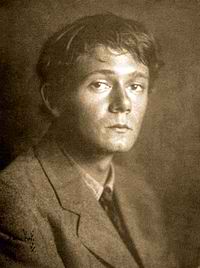 I was captured from the very first poem, “The Gods of the Poor” which offers a pantheon of nameless elder gods overlooking the Earth after Creation and divvying up who wants what. They reach a bit of an impasse when it comes to claiming the poor as no one wants to be the god responsible for them. As the elder gods make their excuses as to why they should not be responsible for the poor, finally Death speaks up and agrees to claim them. The ending is abrupt and solemn and displays perfect timing as a rare punchline that also proves thought-provoking. Strangely enough, I found myself reminded of Edward Gorey’s work and realized that Mr. Hutchings is likewise a talent to be treasured.
I was captured from the very first poem, “The Gods of the Poor” which offers a pantheon of nameless elder gods overlooking the Earth after Creation and divvying up who wants what. They reach a bit of an impasse when it comes to claiming the poor as no one wants to be the god responsible for them. As the elder gods make their excuses as to why they should not be responsible for the poor, finally Death speaks up and agrees to claim them. The ending is abrupt and solemn and displays perfect timing as a rare punchline that also proves thought-provoking. Strangely enough, I found myself reminded of Edward Gorey’s work and realized that Mr. Hutchings is likewise a talent to be treasured.
There is a thread to the poems that makes sequential reading of the collection rewarding, but not essential. Over the past two weeks I’ve found myself skipping around the book and enjoying the author’s mastery of words and their sounds. His talent for conveying much with so little is frequently inspirational and always enjoyable. There are times he slips into other moods displaying a delightful penchant for self-mockery that put me in mind of the Shel Silverstein collections I enjoyed as a child.
His humor in longer pieces such as “Everlasting Fire” recalls Terry Pratchett and you long for an entire novel from Mr. Hutchings in a similar vein. Its tale of the demon Lilith O’Diferous (Lilly for short) and her encounter with an incubus are nothing short of a laugh out loud riot with the currency calculator for 40 pieces of silver coming in at $6.66, the strong drink served being an evil spirit, and the homeless set aflame being referred to as flaming hobo-sexuals. Best of all we learn that McDonald’s is the only restaurant in Hell.
“The New God” is utterly astonishing as the author lays bare the false lure of fame in a witty tale of the Roman Empire that is even more effective for not being set in the modern world. Some of the pieces (such as this one) read more like sketches than poems, but the author’s incisiveness and love of language make returning to your favorites time and again a hard temptation to resist. “The Lamb’s Speech” is likewise an excellent and balanced look at both sides of the animal rights debate. Hutchings delivers the strengths and weaknesses of each position without prejudice and in a classical style that makes the argument truly seem timeless and avoids politicizing.
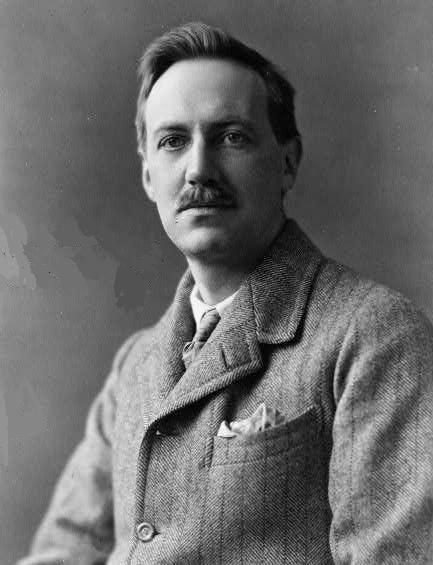
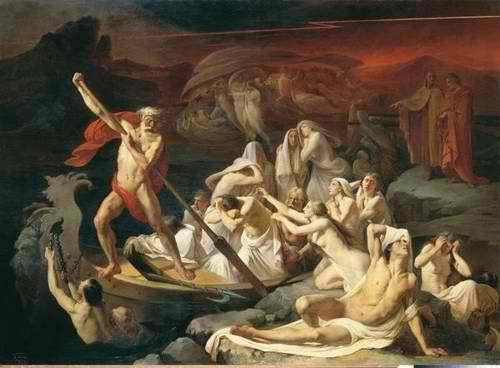 A piece like “The Perfect Woman” discards the gothic trappings of antiquity and instead provides a contemporary look at the age-old foibles of male menopause. Hutchings correctly diagnoses the condition as an immature libido coupled with selfishness and arrested adolescence. Hutchings’ poems, sketches, and fables seem to roll off the reader’s tongue and leave you considering just how true so many of his morals ring. One of his strengths as a writer is the gift of imparting wisdom without ever resorting to preaching. Like Aesop before him, Hutchings is interested only in entertaining readers with his truths and fiction. Whether one heeds the wisdom in his words is entirely up to the individual.
A piece like “The Perfect Woman” discards the gothic trappings of antiquity and instead provides a contemporary look at the age-old foibles of male menopause. Hutchings correctly diagnoses the condition as an immature libido coupled with selfishness and arrested adolescence. Hutchings’ poems, sketches, and fables seem to roll off the reader’s tongue and leave you considering just how true so many of his morals ring. One of his strengths as a writer is the gift of imparting wisdom without ever resorting to preaching. Like Aesop before him, Hutchings is interested only in entertaining readers with his truths and fiction. Whether one heeds the wisdom in his words is entirely up to the individual.
The other stories Mr. Hutchings adapts are “Under the Pyramids” by H. P. Lovecraft, “The Garden of Adompha” (a surprising choice) by Clark Ashton Smith, and (my personal favorite) “Charon” by Lord Dunsany. These are sprinkled throughout the collection and serve to correct the mood and get the author back on a gothic path after his penchant for irony and satire leads him astray with frequently highly amusing results. There is one very obvious downside to the collection and it is one that very nearly ruined the book for me: it should be at least several hundred pages longer. Mr. Hutchings’ work is far too addictive for readers to be content with one single volume. So for those interested in the perfect Halloween gift for themselves or others, look no further than the terrors, delights, laughs, miseries, heart, and wit contained herein. The New Death and Others is available direct from Smashwords at http://www.smashwords.com/books/view/92126 or from Amazon.com at http://www.amazon.com/New-Death-others-ebook/dp/B005Q8Q8DY/ref=sr_1_1?s=books&ie=UTF8&qid=1319338223&sr=1-1 The cost is only 99 cents.
William Patrick Maynard was authorized to continue Sax Rohmer’s Fu Manchu thrillers beginning with The Terror of Fu Manchu (2009; Black Coat Press). A sequel, The Destiny of Fu Manchu is coming in early 2012 from Black Coat Press. Also forthcoming is a collection of short stories featuring an original Edwardian detective, The Occult Case Book of Shankar Hardwicke and an original hardboiled detective novel, Lawhead. To see additional articles by William, visit his blog at SetiSays.blogspot.com